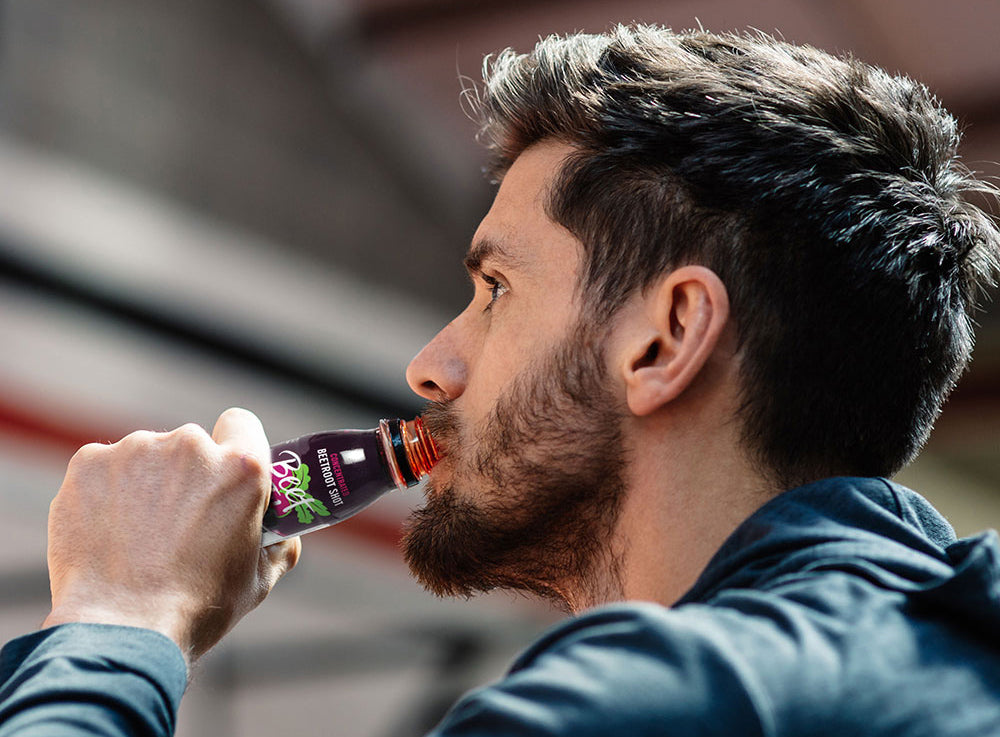Beet juice is often marketed as a natural performance enhancer, but not all products live up to the hype. From nitrate content to processing methods, there are several reasons why your beet juice might not be helping your endurance, strength, or recovery the way you expect.
Here, we break down the most common issues with beet juice supplements and how to choose one that actually works.
What You’ll Learn in This Article
-
Why nitrate content is critical for performance benefits
-
How nitrate timing and conversion affect results
-
The impact of processing and additives on product quality
-
Why individual response to beet juice varies
-
How to choose a beet juice supplement that works
4 Reasons Why Beet Juice Products Can Be Less Effective
1. Most Products Don’t Have Enough Nitrate Content
Nitrates are the key ingredient in beet juice that boosts endurance and performance. But many products contain far less than the effective dose.
Why this matters:
-
400mg of nitrate per dose is the amount recommended by the International Olympic Committee for enhancing performance.
-
Commercial beet juices often fall short, containing as little as 100–200mg due to dilution, blending, or low-quality beets.
-
Low nitrate levels mean little or no performance boost, even if the product is marketed as high-nitrate.
Numerous studies show that nitrates enhance oxygen efficiency, VO₂max, and increase time-to-exhaustion in exercise, but only when consumed in adequate amounts.
Beet It Sport Nitrate 400 is one of the few products with a guaranteed 400mg nitrate dose in every shot. That’s the clinically effective amount proven to support endurance performance.
Want the science behind this number? Here’s our full breakdown of beet juice for athletic performance.
2. Timing and Nitrate Conversion Matter
Even with the right amount of nitrate, your body still has to convert it into nitric oxide to improve performance.
Why this matters:
-
Conversion starts in the mouth, using nitrate-reducing bacteria on your tongue. Avoid mouthwash or chewing gum before consumption as they can kill these helpful microbes.
-
Peak nitric oxide levels occur 2–3 hours after consumption, so timing your dose before training is critical.
-
Drinking beet juice too close to exercise (or during it) won’t allow for full conversion and may blunt the performance benefits.
This nitrate-to-nitrite-to-nitric oxide pathway supports vasodilation, improves muscle oxygenation, and reduces the oxygen cost of exercise. But the pathway is highly timing-dependent and sensitive to disruptions.
3. Processing and Pasteurization Reduce Effectiveness
The way beet juice is made has a major impact on how well it works.
Why this matters:
-
Raw, cold-processed beet juice retains more nitrate compared to pasteurized or heat-treated versions.
-
Pasteurization degrades nitrate content, often reducing the active dose below the performance threshold.
-
Additives like sugars or preservatives may interfere with nutrient absorption and diminish the intended benefits.
While pasteurization extends shelf life, it comes at the cost of potency. Athletes seeking results should prioritize cold-extracted or nitrate-standardized products.
Looking for a recovery-driven alternative? Tart cherry juice is another science-backed option for reducing inflammation post-exercise.
4. Results Vary from Athlete to Athlete
Beet juice doesn’t work the same for everyone—and that’s completely normal.
Why this matters:
-
Your oral microbiome affects how efficiently you convert nitrate to nitric oxide.
-
Genetics, training history, and baseline fitness also influence how much of a boost you’ll feel.
-
Some athletes may experience noticeable gains in stamina and time-to-fatigue, while others see more subtle effects, or none at all.
Studies have shown considerable variability in individual response to beet juice supplementation, reinforcing the need to experiment and track your own results.
Key Takeaways
Beet juice can be a powerful performance enhancer—but only if the product meets key criteria.
To get the most out of your beet juice supplement:
-
Choose a product with at least 400mg of nitrate per dose—lower doses likely won’t move the needle.
-
Time your intake 2–3 hours before exercise to give your body time to convert nitrate into nitric oxide.
-
Avoid pasteurized or additive-heavy products that may reduce nitrate content or affect bioavailability.
-
Recognize that results vary—your body might respond differently based on your physiology, diet, and oral bacteria.
Beet juice isn't magic, but used properly, it’s a research-backed way to support better endurance, power output, and overall performance.
Beet It Sport Nitrate 400 is one of the few beet juice supplements with a guaranteed dose and clean label, making it a top choice for athletes who want results.
If you learned something new from this article and are curious to know more, check out the Blonyx Blog or head to our growing list of weekly sports science research summaries where we help you further improve your athletic performance by keeping you up to date on the latest findings.
Looking for more ways to keep up with Blonyx?
Join the Blonyx Strava Club to track your progress, share training tips, and connect with athletes who share your athletic ambition.
You can also follow us on Instagram and Facebook for additional sports science information, announcements, exciting giveaways, and more!


